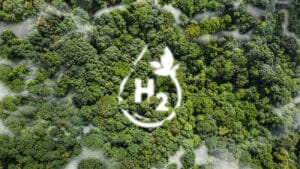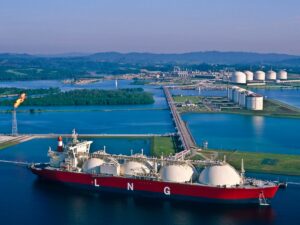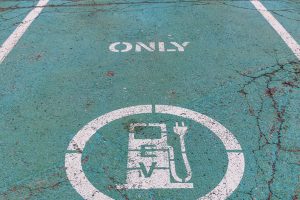How are regulatory authorities adjusting their policies and governance, and how should they adjust, to ensure that they meet societal goals and promote fair and efficient economic choices? This online training combines theoretical and practical views on how to assess regulatory delivery, as well as outputs and outcomes of regulatory authorities, from different economic, societal, and legal perspectives.
The 4th edition of the Regulatory Delivery online course will provide a comprehensive theoretical background and examples of governance models evolution experienced in Europe, namely for the energy transition, while comparing them with innovative initiatives in South America, Asia, and Africa. During the course, you will review increasingly complex infrastructure regulation due to public policies promoting liberalisation, decarbonisation and digitalisation.
Welcome class: 4 March 2022
Week 1: Regulatory Delivery: Theory and Practice (7 – 14 March 2022) Topics: Identifying Goals and Approaches; Methods and Tools; Transitional Regulation
Week 2: Economic Assessment (14 March – 21 March 2022) Topics: Regulatory Impact Assessment; Approaches to Cost-Benefit Analysis
Week 3: Social Valuation (21 March – 28 March 2022) Topics: Participation Theory and new deliberative methods; Better Regulation; Ethics, public interest and common goods
Week 4: Legal Scrutiny and Complexities (28 March – 4 April 2022)
Topics: Institutional Architecture and Governance of Competition & Regulation; Judicial Review of Agency Acts; and Regulation of Multi-sector/multi-level infrastructure architectures;
Week 5: Digitalization, Feedback and Governance (4 April – 11 April 2022) Topics: Datafication & Alghoritimization; Agency adaptation (redesign) 16-22 November
Week 6: Final Project delivery (11 April – 16 April 2022) 16 April 2022
Week 7: Workshop for the Feedback of Final Projects (23 April 2022 2-5pm CET)
The course is primarily designed for professionals working in regulatory agencies, government agencies, and other organizations involved in rule-making and enforcement, as well as in regulated undertakings.
The course is also suitable for those working in academia, media, and NGOs who wish to get a better understanding of current trends and challenges in regulatory thinking and practice.
At the end of the course, the participants can earn a certificate depending on their level of engagement and performance throughout the course.
All Participants will experience throughout the course:
The learning target may vary based on the aimed course level of engagement.
Dedication Time
The amount of time required to take this course depends on the aimed course level as well as the level of expertise in the subject prior to joining the course:
Each year, the Florence School of Regulation – Energy and Climate (FSR Energy & Climate) awards scholarships for a wide variety of training courses targeting a broad audience of professionals and academics.
Applications will be assessed by a Selection Committee of FSR members on a yearly basis. The successful candidates will be informed by 28 February 2022 and will be provided with all relevant information on how to enroll in the online course or residential training of their choice.
Send your application by 9 January 2022.
Fees
Cancellation Policy
Paid registration fee is non-refundable. However, the substitution of registrants can be done up to 20 days before the start date of the course.
Michelle Hallack – IDB
Emmanouil Santorinaios – ACER
Dominique Jamme – CRE – Commission de Régulation de l’Energie
Peter Alexiadis – Brussels office of Gibson, Dunn & Crutcher
Magnus Wahlin – City of Växjö, Sweden
Caio Mario da Silva Pereira Neto – FGV São Paulo
Henrik Bjornebye – University of Oslo
Despoina Mantzari – University College London
David Rua – INESC TEC – Institute for Systems and Computer Engineering, Technology and Science
Jean-Baptiste Fraysse – Blocktricity
Swetha Bhagwat – FSR
Miguel Vasquez – FSR
Joisa Dutra – FGV Rio de Janeiro
Flavia Lis Pederneiras – ANEEL
Patrícia Trindade Dontal – ANEEL
Márcio Venício Pilar Alcântara – ANEEL
Victor Queiroz Oliveira – ANEEL
Felipe Augusto Cardoso Moraes – ANEEL
Hugo Alves Silva Ribeiro – ANTT
Are regulatory authorities delivering what society, customers, and investors expect? If you want to know the answer, join the Florence School of Regulation Online course on Regulatory Delivery.

All you need to know about the power sector and power systems around the world Power system regulation is never at a rest, and this is particularly true for the…

This ten-week course covers the fundamentals of energy and climate policy in the EU Green Deal. The Grand Tour of Europe’s energy and climate policy The European Green Deal is…

In this new 2-day residential course from the Florence School of Regulation, we provide an immersion in the legal and technical framework of the European hydrogen sector. Over the two…

This course is reserved for experts from the Southern and Eastern Africa and South Asia, including the following countries and territories: Congo, Cameroon, Nigeria, Ghana, Senegal, Mauritania, Morocco, Algeria, Tunisia,…

Charging Infrastructure & Power System Integration of Electric Vehicles In the past 10 years, the deployment of Electric Vehicles has been growing at a rapid rate. As EV manufacturers around…

Clean Molecules: Hydrogen, Biogas, Biomethane, Synthetic Gas Within the EU Green Deal vision and framework, renewable, low-carbon, and even emission-negative gases have a crucial role to play in decarbonising the…

Learn the fundamental regulatory principles of the electricity and gas sectors through hands-on, real case activities and examples with instructors from national regulatory authorities from Europe and North America, the…

Learn about the fundamental regulatory principles of the transport sector through hands-on activities based on real cases and examples with instructors from academia, national regulatory authorities and ministries, the European…

EU Electricity Network Codes & the Clean Energy Package Enter the world of electricity markets in Europe ‘Evolution of electricity markets in Europe’ is an 8-week online course in collaboration…
To meet, discuss and learn in the channel that suits you best.